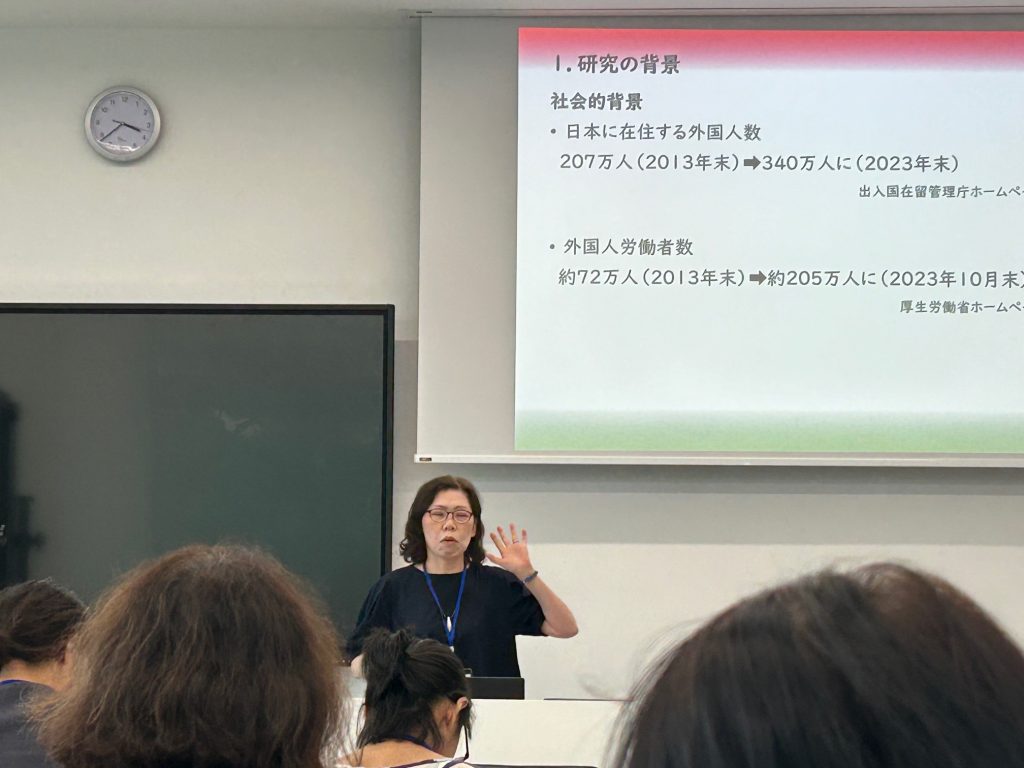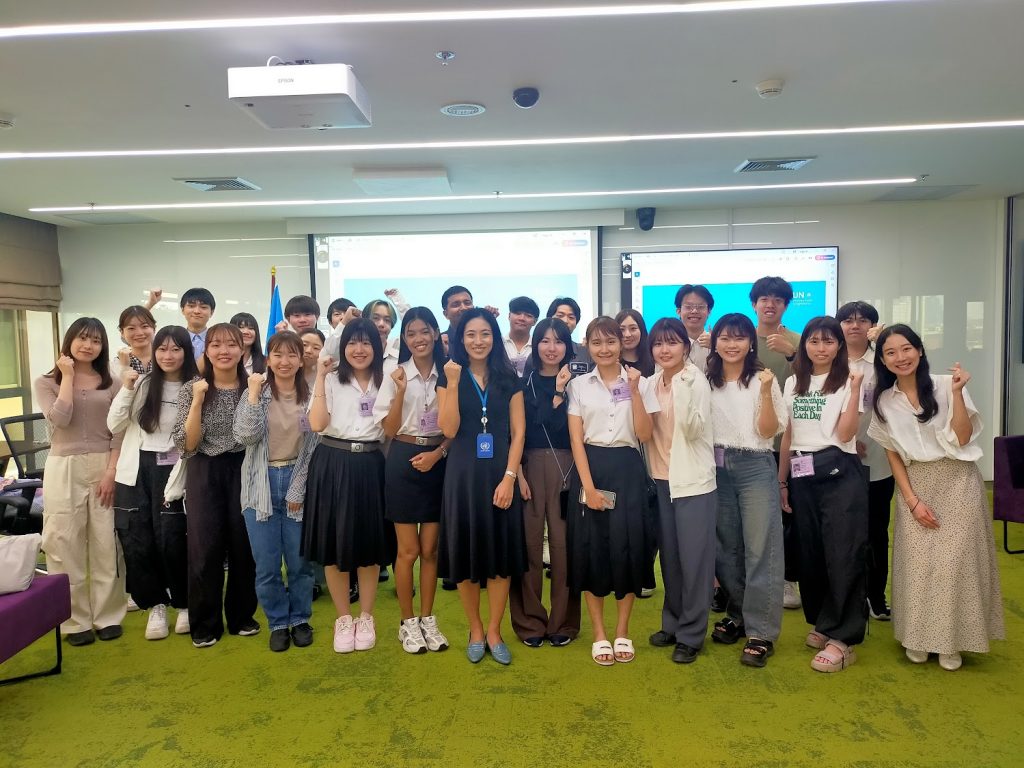Details of the Initiative
As global climate change and population growth continue to accelerate, the sustainability of food is becoming a pressing issue. What can each of us do to address these challenges and move toward a more sustainable world? To explore solutions, the Food and Our Sustainability Program took place from February 11 to 21 in 2025, based at Meiji University ASEAN Center in Bangkok, Thailand. The event brought together 24 students from five institutions: Meiji, Rikkyo, Hosei and Kansai University in Japan, and Srinakharinwirot University in Thailand.
The program opened with discussions with agricultural researchers and representatives from international NGOs, JICA, UNDP, and UNEP, to explore possible approaches to achieving a sustainable society. The students then visited entrepreneurs engaged in innovative practices for sustainable agriculture and also participated in hands-on farming activities.
By the end of the program, each participant identified actions they could take in the future. One participant commented, “I realized that even one person can help create a sustainable world by changing their mindset and behavior. I’d like to start with a familiar issue, like reducing food waste.” Through this program, Japanese and Thai students developed close friendships and have remained in contact since the Japanese students returned to Japan.





